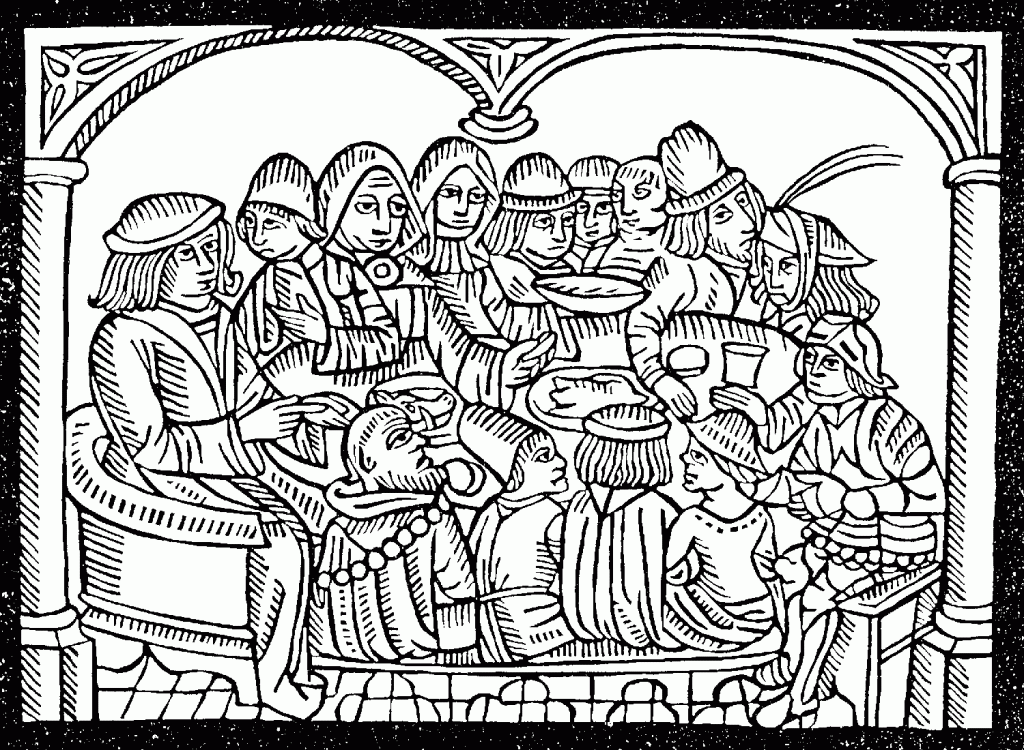Immortal Meals #14: Food Orgy on Twelfth Night June 13, 2014
Author: Beach Combing | in : Modern , trackbackFrom long before the times of Trimalchio there have been extraordinarily sumptuous banquets. These died away with the shriveling of economic possibilities in the early Middle Ages but then returned with avengeance in the fourteenth and fifteenth century. A British contribution to the category of exaggerated banquets and one for the immortal meal tag was the snack put on by Sir James Hay in the early seventeenth century. Hay was a profligate with a wonderful slogan: ‘spend and God will send’ and this early modern Keynsian lived up to his reputation, particularly where food was involved. In 1621 he wasted an almost unbelievable 3,300 pounds sterling on a single meal: about half a million pounds by today’s standards, the annual expenditure of a wealthy English landlord in the 1600s or enough to fund a tiny war against the French. The 1621 feast took place on Twelfth Night. One hundred cooks, forty of them masters, had taken eight days to prepare 1600 dishes. Nor were these small dishes. Some included enormous plates with three foot salmons (there were also six foot Muscovite salmons). Other dishes included exquisite and expensive details: a gross of larks and a gross of pheasants were ordered for the kitchens and the royal bird, the swan, was also butchered. 330 pounds was spent, meanwhile, on ambergris alone – ambergris for the uninitiated is a waxy-substance produced in the digestive systems of sperm whales that passed as an aphrodisiac in Elizabethan and Stuart England. 330 pounds would pay for several score servants for a year OR six measly pounds of this Atlantic gold. The meal began with a supper, graduated to a banquet, then paused for a masque, then concluded with a second banquet, presumably long after dawn.
What is always interesting about these mega meals is that there is not the slightest possibility that those in attendance could have eaten all the food on offer: not least because the total food brought to the tables weighed more than the guests. Indeed, on the testimony of Weldon one of James Hay’s feasts (and very likely this one) began with a supper ‘with dishes as high as a tall man… filled with the choicest and dearest viands Sea or Land could afford’. Weldon goes on to say that the food was almost immediately discarded and replaced by other plates of equal height ‘having only this advantage of the other, that it was hot’. This was a meal where even if you had had only a teaspoon of every dish on offer you would have been bloated by the end. Other immortal feasts: drbeachcombing AT yahoo DOT com



